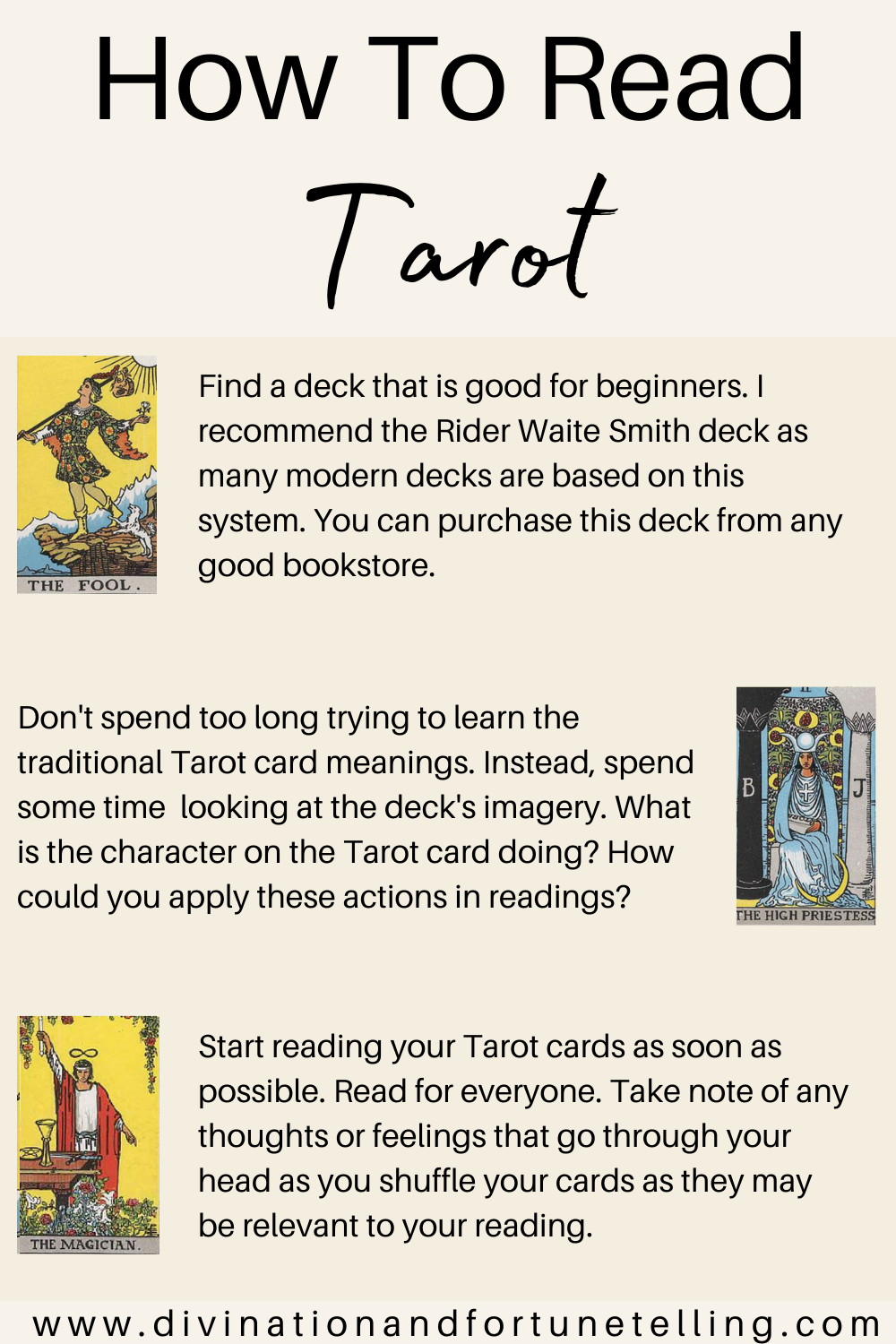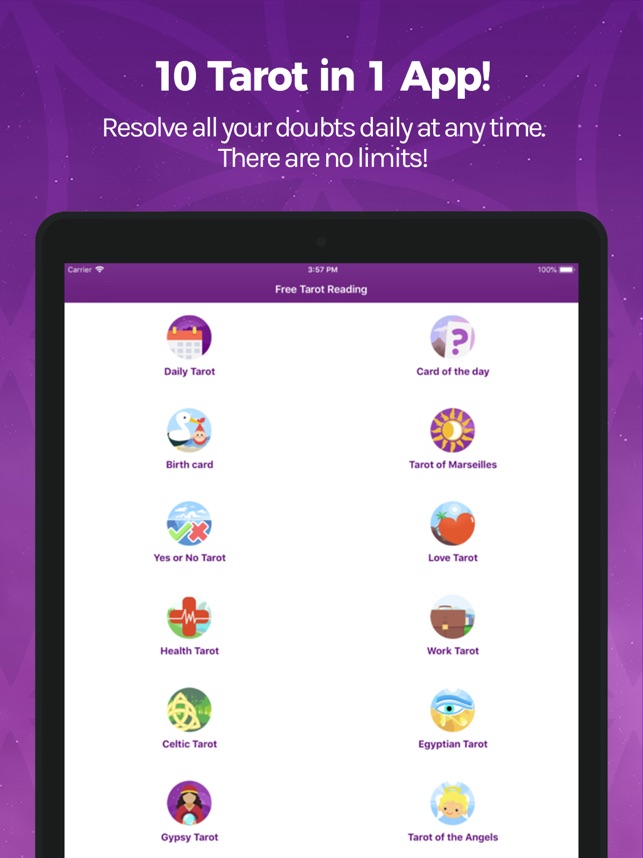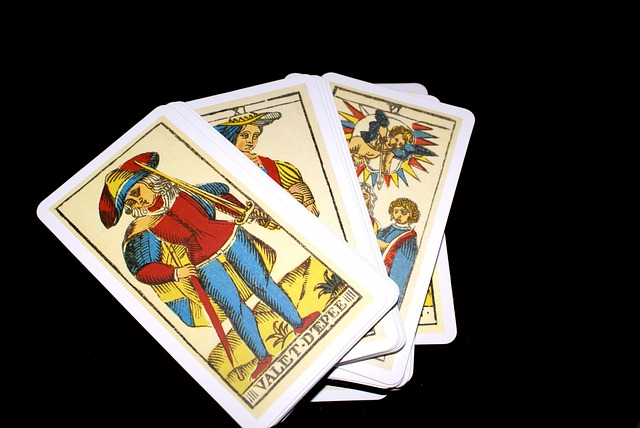
There are a few basic tarot spreads that you can try. There's the Situation-action-outcome tarot spread, the Past-present-future tarot spread, and the Celtic cross tarot spread. It is not difficult to learn the basic spreads, and they can be a great starting point if you are just getting started.
Simple tarot spreads
Tarot Spreads don't require a lot of knowledge. They are simple, but they provide a surprising amount of information. These spreads are especially useful for general overviews and interrelated topics. Their free-form nature also allows for flexibility in interpretation. Here are some examples of simple Tarot Spreads.
The first card is the situation that you wish to see. The second card represents the obstacle or challenge that must be overcome. The third card centers on the past. The fourth card focuses on the future. The fifth card reveals the conscious and unconscious thoughts of the individual. The final card is the opposite of the last one, showing the perceptions of the other person.

Situation-action-outcome tarot spread
The Situation, Action, Outcome tarot spread is a three-card tarot spread that looks at possible outcomes of a situation. This type of reading can be used to answer questions about love and relationships, even though it isn't a love tarot reading. Although it may not give you the full picture of a situation, it does reveal aspects that you may not have noticed otherwise.
This spread can be used to gain more information. It is commonly used for love tarot and has three cards in the top row, and two cards in the bottom. When using this spread, you draw the first card from the bottom row, which represents you, the second card represents your partner, and so on.
Past-present-future tarot spread
The Past-present/future Tarot Spread is a powerful layout that allows you to connect with the past and future. The spread can be used in many ways, depending on your preference. The spread comprises three cards placed side-by. The spread consists of three cards arranged side-by, so the Four Elements run across it. It covers money, relationships, work, and problems.
The Past-Present Future Tarot spread is one the most popular of three-card spreads. It's especially helpful if you have questions about timing. The first card represents elements from the past which are influencing the current. The first card represents the present, and the second represents the likely outcome. You can use the Past Present-Future Tarot spread efficiently by meditation on the first card of the line-up, and visualizing the card fitting the question.

Celtic cross tarot spread
The Celtic cross Tarot Spread, one of the most traditional layouts, is one. It can be used to help you get a sense of where your life is at the moment. There are many different layouts, and each position has its own meaning.
The Celtic cross can be divided into two sections. The first section contains the querent, while the second section is reserved for the block. The root of a problem, or unconscious energy that is responsible for the issue, can be found in the third segment.
FAQ
What are collection hobbies?
The most sought-after collections are books and movies, music, comics as well as comics, videos games, sports equipment, toys, and others.
Also, you can collect anything: stamps, coin to cars, dolls to action figure to model kit to figurines to art materials to tools to cook utensils and jewelry to watches to jewellery to appliances to clothes to furniture or antiques to...
You get it?
What hobbies are in fashion right now
Popularity isn’t always a positive thing. Popularity can often be used to excuse mediocrity. Most people don’t have the time to pursue any hobbies they desire. They're too busy working to make ends met. So what should you do if you don't have much free time? You could also start your own business.
This isn't an easy task. You will need to overcome many obstacles before your idea can become a reality.
If you are looking for something more than running a business you might consider starting a hobby.
Hobbies can be more than just creative pursuits. There are many hobbies. Here are some examples:
-
Gardening
-
Cooking
-
Photography
-
Reading
How can I find a hobby?
It can feel overwhelming to start your search for a hobby when you first begin.
You're probably thinking, "I'm not very artistic," or "I'm terrible at sports," or maybe even "I don't know anything."
The truth is that you likely already have a lot experience in your chosen hobby.
It's just that you haven't realized it yet.
Have a look at your home. How many things do you own?
Do you have any old toys lying around?
Perhaps you have a collection.
Maybe you've always wanted to learn how to cook.
Or perhaps you would just like to learn how to play the guitar again.
Whatever it is, there's likely something you can turn into a hobby.
Realize that you have many experiences already.
You will find a hobby you love once you have it.
Why do we require hobbies?
Hobbies are an important part of our lives because they give us time to relax, unwind, think creatively, exercise, socialize and enjoy ourselves. These hobbies offer us the opportunity to learn new skills, develop valuable lifelong interests, and provide opportunities for us to do both.
Hobbies allow us to find meaning in our lives.
These can often be a great way to get some extra time while you have nothing else.
They're even fun!
You probably don’t have enough time to pursue hobbies.
Consider all of the possibilities available to your. Start a hobby today, if you don’t have one already!
What are observation hobbies?
Observation hobbies are those activities that allow you to watch others do what they do. You might be interested in watching sports, reading, going on holidays, and so forth. You might also enjoy observing other people.
You can learn creativity through observation hobbies. This knowledge will be useful later in your work for others and yourself.
You'll find that if you're interested in something, then you'll have an easier time learning about it.
You might watch or read about football to learn more. If you want to learn more about photography, you could take or visit exhibitions.
If you enjoy playing music, you could play along to songs online or buy a guitar.
If you love cooking, you can either cook your meals at home or order from a local restaurant.
If you love gardening, you might grow vegetables or flowers.
If you are a fan of dancing, you can join a class or go out with your friends to learn.
If you love painting, you can paint pictures.
If you love writing, you might be interested in writing poems and stories.
You might enjoy drawing pictures, if you are a good artist.
If you're passionate about animals you might consider working at a Zoo or looking after their pets.
If science interests you, you can study biology, chemistry or physics.
History is something you might enjoy if you read books, watch movies, or listen to podcasts.
You can travel abroad or explore your home area if you love to travel.
What are your top hobbies?
It's the hobbies you are most passionate about that make you happy. If you love what you do then you'll find it much easier to keep going. This will give you a reason for not feeling well, or tired.
Our hobbies include painting, crafts, photography and cooking.
Consider volunteering at your local animal shelter, charity shop, hospice, children's hospital or hospice, elderly care home, school center, church, or community center.
Suppose you're looking for something more adventurous. You might consider scuba diving or skydiving.
You can spend your time outdoors in many different ways, including spelunking, snowshoe hiking, snowshoe hiking and more. These include caving.
Statistics
- 37% Video Games 36% Travel 36% Health and Fitness (quizexpo.com)
- Studies show that just six minutes of reading can reduce stress levels by 60 percent. (oberlo.com)
- In comparison, men in the “no humor” condition were refused 84.6% of the time and were only accepted 15.4% of the time. (time.com)
- A new survey by Pew Research Center of teens ages 13 to 17 finds that 36% of girls feel tense or nervous about their day every day; 23% of boys say the same. (pewresearch.org)
- The intensity of the dialogue partners' bond at the end of the forty-five-minute vulnerability interaction was rated as closer than the closest relationship in the lives of 30 percent of similar students. (time.com)
External Links
How To
How to learn a music instrument
There are many different ways to learn how music is played. You could either go to a school, buy a book, take lessons from someone who plays an instrument, watch videos online, etc. Here are some tips and techniques to help you learn if your goal is to create your own learning path.
-
Find something that interests your interest. Try another instrument if you don't love any of the ones you see. It is difficult to enjoy an instrument if it is not something you are interested in.
-
Be patient. It takes time to learn anything new. Don't expect to master everything right away. Keep practicing each day.
-
Practice regularly. This can be done even when you are tired. This will ensure you don't forget what lessons you have just learned.
-
Make sure you choose a safe place to practice. The ideal place to practice is one that is quiet and won't be disturbed by anyone else. It is important to keep the room clear of distractions. Also, don't let loud music play near your home.
-
Have fun. Music is meant to be enjoyed. You should have fun practicing music. Enjoying yourself will motivate you to continue going at it.
-
Set goals. Set goals. You'll know exactly what you must achieve. Therefore, you will have no excuse for failing.
-
Keep track and keep track of your progress. Note down your successes and mistakes. You'll be able to learn and improve as you go.
-
Take breaks. Sometimes, you will just need to stop for a while. Take breaks to allow you to reflect on things.
-
Ask questions. If you have any questions or doubts about the instrument, ask other people. They may be willing to help.
-
Listening is the best way to learn. Many musicians love to listen to and imitate songs. This allows them to understand the basic ideas behind the song.
-
Read books. You will learn more from reading books than you can by watching videos or attending classes. Books also contain information that you cannot find elsewhere.
-
Join a band. Playing with others will force you to practice more. Plus, you'll meet people with the same interests as you.
-
Watch tutorials. Tutorials are videos that provide detailed explanations of various topics. These videos typically focus on one aspect of the instrument. Watching tutorials can help you understand difficult parts of the instrument.
-
Explore different learning methods. Some people prefer to learn via lectures while others prefer to read. Find what works best for your learning style.
-
Practice makes perfect. There is no way to be an expert overnight. You must work hard to become proficient enough to do well.
-
You can learn from other musicians. You can learn faster by listening to other musicians play your favorite songs.